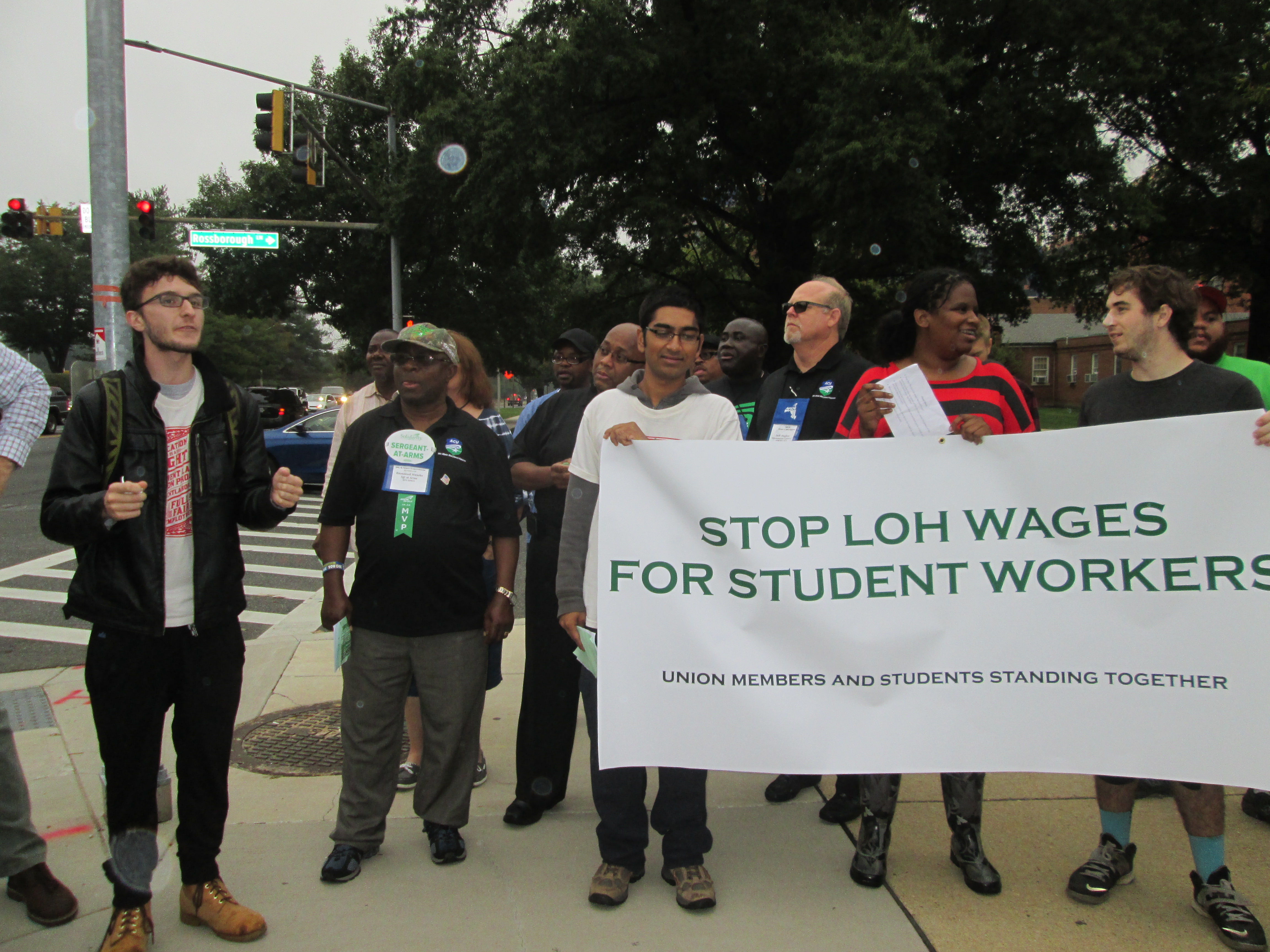After Alexandra Gbozia goes to class, she doesn’t get to go home and do homework. Instead, she goes to one of her two jobs to keep up with tuition, rent and food expenses.
“Because of how much I make, it’s always a matter of choice,” the senior business management major said. “Sometimes I have to choose between something that I need and something that I want.”
Gbozia, who works for the Student Organization Resource Center, is one of many students employed at the University of Maryland and making $8.75 an hour, Maryland’s minimum wage. University employees are faced with the same standard, while the Prince George’s County’s minimum wage stands at $10.75.
But state legislators are considering a bill that would gradually increase minimum wage by $1 each year until it reaches $15 in 2022, which would be “a great thing for workers,” said Graduate Student Government Chief of Staff Caden Fabbi. The statewide minimum wage will increase up to $10.10 by July 2018, according to Maryland’s Labor, Licensing and Regulation Department.
[Read more: UMD doesn’t have to pay PG County’s minimum wage. These groups want to change that.]
More than 4,000 graduate assistants on the campus earn minimum wage, which makes it difficult for them to live in the area, Fabbi said.
Since many graduate students have to live off-campus in the College Park or surrounding Prince George’s County area, Fabbi said they live in an expensive area but earn wages as if they lived in a place with lower housing costs.
“[With the higher county minimum wage], there’s recognition from the county that this is an expensive place to live,” he said. “This is a time when graduate students and undergraduate students are taking out significant amounts in student loans just to cover the cost of not only their education, but also living in the area.”
This university’s Student Labor Action Project has been a proponent for increasing the campus minimum wage to match the county’s. One of its members, Cory Johnson, explained the group’s reasoning. He said it doesn’t make sense for those who work at Starbucks or Target in the city to make at least two dollars more than campus employees.
[Read more: The University of Maryland should match Prince George’s County’s $10.75 minimum wage]
“You can’t live in College Park earning such a low income, much less go to school here,” he said. “A message is being sent to working students saying you’re not welcome here or that this place isn’t meant for you, and I think with a $15 minimum wage, that sort of shifts the tide a little bit.”
Judith Hellerstein, an economics professor at this university, called the proposed plan “a grand experiment,” as no states have instated a $15 minimum wage. As of Jan. 1, Washington, D.C., has the nation’s highest state minimum wage at $11.50 per hour, while the federal minimum wage is $7.25.
“We don’t have a lot of experience understanding what the effects of raising the minimum wage a lot are on workers or on firms for that matter,” Hellerstein said. “In that sense, raising the minimum wage to $15 an hour has impacts that we don’t really know.”
The D.C. minimum wage will reach $15 by July 2020, according to the Economic Policy Institute, while cities such as Seattle have already implemented this amount for workers.
But the effects of a minimum wage increase would depend on how the law is passed, the timing, how long it takes to implement the changes and who it affects, Hellerstein said.
However, Hellerstein said not all of her colleagues hold the same opinion about increasing the minimum wage. One thing economists worry about, she said, is an arbitrary “tipping point,” where there will be “large and measurable employment losses or hours cut” if the minimum wage surpasses a certain point, she said.
“Labor economists in general who study the minimum wage are very divided about the impact of the minimum wage on workers,” she said. “It’s a very very long and pretty aggressive debate with very good economists on both sides.”
But regardless of whether the bill is passed, now is a good time for the minimum wage to increase slightly, because of the economy’s signs of strength, including lower unemployment, Hellerstein said.
“I think if things stay pretty smooth, the legislated minimum wage is not going to have a massive impact on the labor market one way or another,” she said. “It’ll certainly be useful to workers who get [increased] wages who otherwise wouldn’t have gotten them.”



